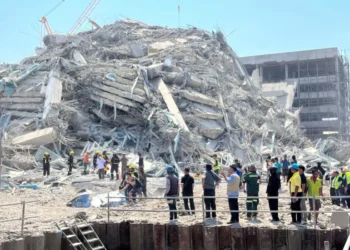In recent years, the world has watched with concern as Hong Kong’s cherished freedoms and autonomy have been steadily eroded by the Chinese government.
The latest blow to the city’s democracy comes in the form of a new national security law, known as Article 23, which grants the government sweeping powers to suppress dissent and punish perceived threats to its authority.
The passage of this law, rushed through the legislature in just 11 days, is deeply troubling and represents a significant setback for human rights in Hong Kong. Under the guise of national security, the Chinese government has effectively tightened its grip on the city, silencing dissent and stifling freedom of expression.
At the heart of the issue is the vague and broadly defined nature of the law, which criminalizes a wide range of activities. These ambiguous provisions provide ample room for abuse, allowing the government to target anyone who dares to speak out against its policies or challenge its authority.
The package, known as Article 23, punishes offences including treason, sabotage, sedition, the theft of state secrets, external interference and espionage with sentences ranging from several years to life imprisonment.
Under the law, treason, insurrection and sabotage can be punished with life sentences, while jail terms for sedition are increased from two years to seven, or 10 if alleged perpetrators are found to have colluded with a foreign force. The law also lengthens allowable periods of detention without charge from 48 hours to two weeks.
Under the guise of national security, individuals could be targeted for simply expressing dissenting opinions or participating in peaceful protests. This sends a chilling message to the people of Hong Kong that their fundamental rights are under threat.
After the vote, Hong Kong’s leader, John Lee, said that the law would take effect Saturday.
The law adds to an already powerful national security law that was directly imposed by Beijing on Hong Kong in 2020 after huge and sometimes violent pro-democracy protests the year before.
That law has already transformed Hong Kong with authorities jailing dozens of political opponents, forcing civil society groups and outspoken media outlets to disband and transforming the once freewheeling city into one that prioritizes patriotism.
In mainland China, national security laws have often ensnared both local and foreign businesses in opaque investigations.
“It is alarming that such consequential legislation was rushed through the legislature through an accelerated process, in spite of serious concerns raised about the incompatibility of many of its provisions with international human rights law,” said United Nations high commissioner for human rights, Volker Turk, in a statement.
Turk’s statement said that broadly defined and vague provisions in the bill could lead to the “criminalisation of a wide range of conduct protected under international human rights law, including freedom of expression, peaceful assembly and the right to receive and impart information.”
For it to be passed without a “thorough process of deliberation and meaningful consultation is a regressive step for the protection of human rights in Hong Kong,” he said.
Observers say the law’s wording has a broad interpretation for what counts as a state secret.
The definition ranges from a secret “concerning the construction of national defense” and “diplomatic or foreign affair activities” of China to any “major policy decision on affairs” and “the economic or social development” of both Beijing and Hong Kong.
Foreign Businesses In Trouble
Hung Ho-fung, sociology professor at Johns Hopkins University, said that when social and economic affairs are treated as state secrets, “this is to say it can include anything.”
“With these draconian and not clearly defined clauses, even apolitical business persons can get into trouble and will face the risk of their office being raided and themselves being detained, arrested or placed under exit ban as in many cases in mainland China,” he said.
“This will surely increase the doubt, anxiety, and uncertainty of foreign businesses in Hong Kong.”
The US State Department said the new law had “the potential to accelerate the closing of Hong Kong’s once open society” and it was analyzing what the potential risk could be to US citizens and “other American interests.”
Amnesty International China Director, Sarah Brooks said the legislation “delivered another crushing blow to human rights in the city.”
“The authorities have enacted this law in the blink of an eye, killing off any remaining shred of hope that public outcry could counter its most destructive elements,” Brooks said in a statement, adding, “This is a devastating moment for the people of Hong Kong.”
“The passing of this law sends the clearest message yet that the Hong Kong authorities’ hunger to accommodate Beijing’s will outstrip any past commitments on human rights,” Brooks asserted.
READ ALSO: Gaza Robbed To Pay Israel




















